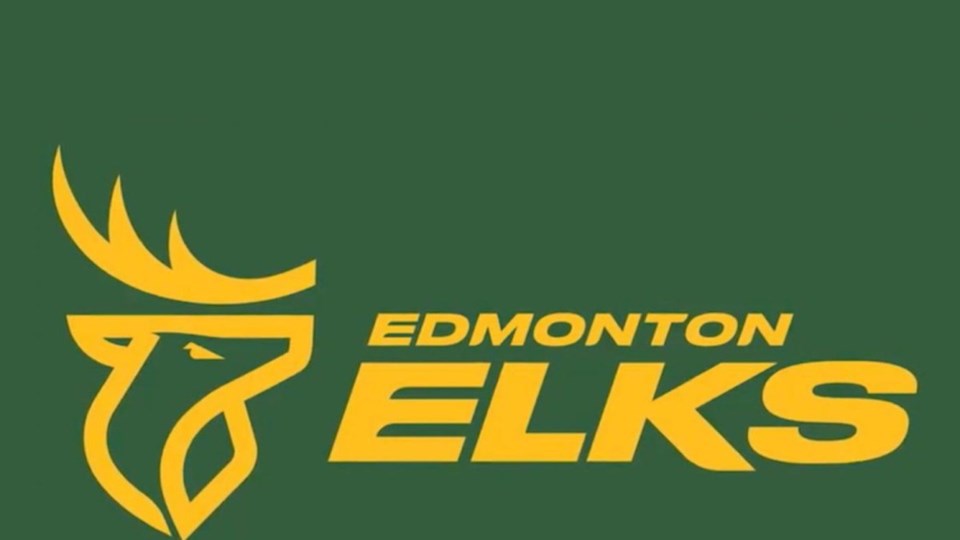The regional chief for the Assembly of First Nations in Alberta and the chief of the Enoch Cree First Nation agree that renaming Edmonton’s CFL team is a step in the right direction towards reconciliation.
“It’s a small gesture, but within the bigger picture reconciliation is a never-ending road. It might be cliche, but you take it one day at a time,” says Enoch Cree Chief Billy Morin.
On June 1, the team unveiled its new Edmonton Elks branding, 10 months after the team agreed to change its name from the Eskimos — a racial slur against Inuit peoples.
“It should have happened a long time ago, but hindsight’s always easy,” says Morin, who gave credit to the franchise for making the right call after a decade of debate.
AFN Regional Chief Marlene Poitras says this small goodwill gesture pales in comparison to the horrific discovery of the remains of 215 Indigenous children on the site of a former residential school in Kamloops, B.C., but is nonetheless part of a broader cultural shift towards taking Indigenous peoples’ concerns seriously.
She agrees it should’ve happened sooner, but is likewise pleased that the name is changed, which she pointed out was relatively easy, since the team didn’t have to change the acronym on their logos. “It’s way overdue. The Truth and Reconciliation Commission released a report about 10 years ago and now things are finally starting to happen,” Poitras said. “It’s about time.”
Morin says he didn’t play a significant role in having the name changed beyond “general conversations” with the franchise’s former CEO, crediting Inuit organizations for their advocacy. “They were engaging with Inuit communities and I thank them for keeping the dialogue open and working with communities to reach an ultimate solution,” he said.
The new name reflects the diversity of the team’s fanbase, says Morin, who reflected back to when the Grey Cup was in Edmonton and he was invited to say a land acknowledgement before the singing of O Canada. “A lot of small things, ultimately when you reflect back, they add up and can lead to bigger things collectively,” he said, calling the name change a “milestone”.
“I’m glad reconciliation played a role in that and I do wish them well going forward. I’m actually a big Elks fan. I’ve got to get used to saying that name myself … My dad used to take me to games.”
Poitras says the name change could only broaden the team’s following in the region. “They’ll continue to maintain their fans and continue to get some new ones because of their reconciliation efforts,” she said.
“There’s so much work we need to do to eliminate systemic racism and if more organizations or people took small steps, it would certainly be a lot more meaningful for Indigenous people everywhere.”
Elks CEO Chris Presson acknowledged that the change “was probably a few years overdue, to be honest.”
“But I’m glad that we’re where we are now,” Presson said. “No doubt we made the right decision.”
As recently as February 2020, the team said they would keep the Eskimos name after the results of a year-long consultation process were inconclusive, but reversed its position several months later due to a backlash from sponsors, such as insurance provider Belairdirect.
“Man, it’s been a whirlwind,” Presson told TSN. “We wanted to make sure we got it right, we wanted to make sure we did the proper research and we wanted to make sure we created something that was special, and we have.
“When you look at the history of the Edmonton Football Team and the CFL itself, there’s a lot there to see. To know you are a part of that and you had a chance to make an impact like this, it’s pretty special.”
Elks was one of seven finalists for the new name, all of which started with the letter ‘E’ — Evergreens, Evergolds, Eclipse, Elkhounds, Eagles and Elements.
The original option was to call the team the ‘Elk’, but upon consultation with linguists at the University of Alberta and the Oxford Dictionary, they determined ‘Elks’ would be more appropriate.
The new name “reflects the speed, strength and resilience of the Green and Gold and Northern Alberta,” reads a statement from the organization.
After the 2020 season was cancelled due to COVID, the CFL plans to be back in action this year for a 14-game season starting Aug. 5.




